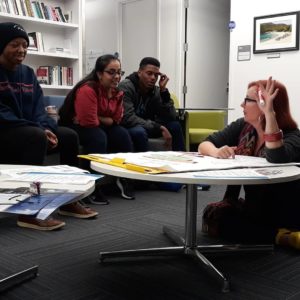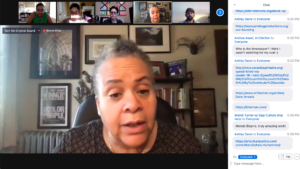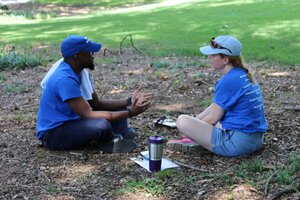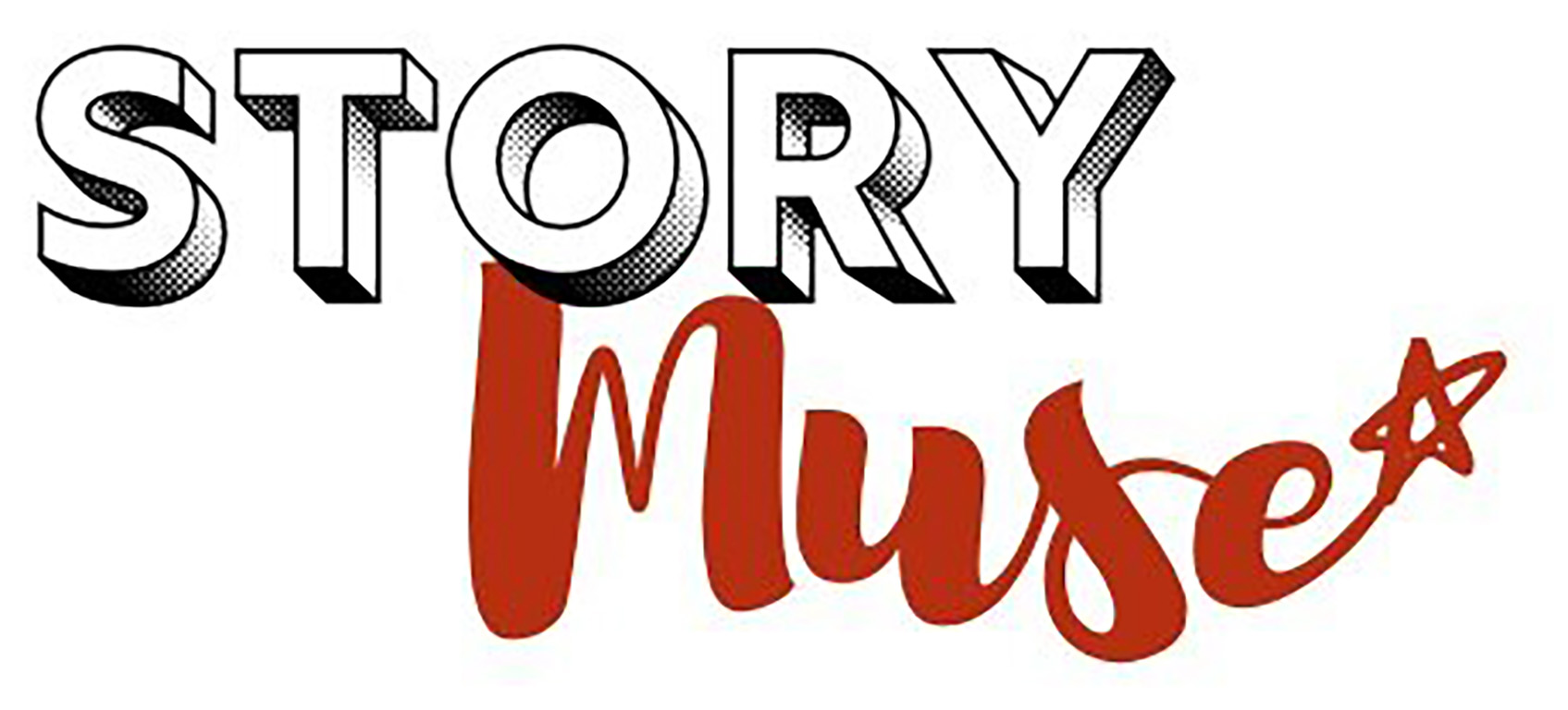
A workshop I taught in “the beforetimes” with Georgia State students. I never knew how good I had it.
Good golly, Miss Molly, I’m exhausted.
Over the last few weeks, I’ve had several opportunities to teach workshops or sit on panels on Zoom. I’ve worked with high schoolers, college students, and nonprofit boards. It’s great to have the work, to spread the gospel of story. There’s nothing I love more than helping people think about the power of their stories, especially in these strange times.
However…
It is just no joke, this way we’re living our lives in virtual space.
It impacts…everything.
One thing I’ve noticed is that the younger the age group, the harder it gets. I think that might be because they simply can’t comprehend what they’re missing. It’s too easy to turn off their cameras and not engage.

Case-in-point: This is the best Zoom call I’ve been on recently, a panel of fellow community-based artists from Alternate ROOTS speaking with graduate students at CalArts. Everyone was so engaged, lively, and excited to witness every part of what each other person had to offer.
In one small group of young people I’ve been coaching, it took me two weeks to coax them out, tell them they had to keep their cameras on, and get them to stop muting themselves the nanosecond they stopped talking.
Let me take a GIANT step back here and say, yes, I know. I know, I know, I know. There are other many advantages about this way of being. Accessibility for those who have not been able to engage with the physical world in certain ways is outstanding. Yes, I have been able to meet and interact with and make deep bonds with people all over the world in the last year. That would never have happened if not for the pandemic.
And yet…
There’s an invisible mountain of emotional weight that comes with someone’s itchy trigger finger on the mute button. That seemingly small impediment, the blocked red microphone icon, prevents spontaneous thought from bubbling up, spilling forth, being shared in the moment.
It’s about the hiding. I experienced this phenomenon significantly for myself early on in the pandemic. Now I’m on the other side of the empathy coin.
A truly authentic conversation is like tennis. I hit the ball to you, you hit it back to me–the back-and-forth exchange of energy. So often these days, the energy hits a blank screen and falls flat.

Deep listening is a module I lead people through in some of my longer workshops. I talk about how becoming a better listener has impacted my storytelling and how it just makes us better humans.
If nothing else, I find myself full-to-bursting with empathy for educators all over the world who are having to lead and call forth young people into engagement all day long–definitely without enough thanks, support, or financial remuneration. Not to mention the vaccinations they so deeply deserve!
One of the professors who brought me in for a workshop series this month instructed me after the first week: You’re going to have to get much better at calling on people. It’s just how it is now.
I never liked calling on people before in a group, made me feel like I was somehow calling them out.
I’ve been doing a deep listening exercise as a part of my curriculum for years. It’s been interesting to try and pivot that work to Zoom world because, in some ways, it relies on the social norms of being together in physical space. The creative solution I came up with is that I ask listeners to turn off their screens while the storyteller is speaking and then have both tellers and listeners report back on the experience.
Yesterday, after they’d gone through this exercise, college students reported back that they now understand why their teachers seem so frustrated all the time! It’s really hard to talk to an unresponsive blank screen!
So, even though I hate to call on people, I think it’s really about calling in. A gentle invitation back to our humanity.
Please, come into this circle. Stop lurking. We want the full juiciness, all of your presence in this space, even if it’s a new definition of space.
What spaces, either physical or virtual, are waiting for your fullest essence to arrive?
